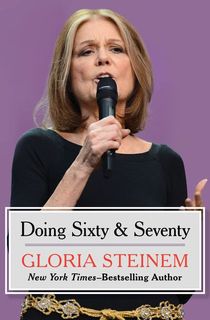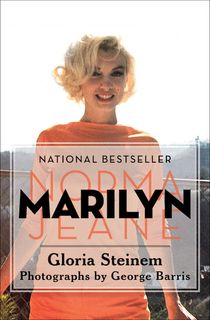A few years ago, we had the privilege of collaborating with Gloria Steinem on our “Reading the Revolution” series. Through a number of essays, the legendary activist revealed and analyzed the "life-giving" reads that, regardless of their fame or age, left her irrevocably changed. As she wrote in one piece: "These are the kind of books that—once we read them—we are not quite the same people as we were before."
But Gloria herself has changed us, and America, just as much. A journalist, activist, and the face of second-wave feminism, she has been at the forefront of social and political reform since the late 1960s. It was a career a long time in the making. Before she rose to fame as a champion of women's rights, a young Steinem witnessed her mother's struggle with mental illness and unemployment—a formative experience that opened her eyes to the imbalances between the sexes.
Armed with this knowledge and a sense of purpose, she used journalism to challenge the system and initiate change. As a writer, Steinem spoke out about reproductive freedom, co-founded the feminist-slanted Ms. magazine, and exposed Hugh Hefner's Playboy empire. The success of her 1969 article "After Black Power, Women's Liberation" ultimately set her at the front of the women's movement, where she remained throughout the early 1970s, and onwards.
Today, it's impossible not to see Gloria Steinem's influence in the #MeToo and #TimesUp movements—but what exactly has influenced her? Read the exclusive essays below to hear, in Gloria's own words, about the stories that have left an impression on her life and her outlook.

Gloria Steinem and Dorothy Pitman-Hughes photographed in 1971.
Photo Credit: AlchetronGloria's Book Reviews:
On Alice Walker's The Color Purple: "A true thing creates truth wherever it goes."
On Octavia Butler's Parable of the Sower: "If there is one thing scarier than a dystopian novel about the future, it’s one written in the past that has already begun to come true."
On Pat Conroy's The Great Santini: "It stands as a classic account of families whose structure is shaped by the rigid patriarchy around them."
Related: 10 Must-Read Pat Conroy Books
On Mary McCarthy's The Group: "The Group lasts because it is read or re-read as an indicator of change—or the lack of it."
On Margaret Atwood's The Handmaid's Tale: "We've learned that Atwood's novel should be read...as a warning about patriarchy and its control of reproduction as the underpinning of everything undemocratic."
On Marge Piercy's Woman on the Edge of Time: "[Woman on the Edge of Time] makes us feel both powerful enough and angry enough to do something about steering toward the more humane future."
On Paula Gunn Allen's The Sacred Hoop: "By teaching us lessons from the hundreds of advanced cultures that prospered on this North American continent...Allen helps us to see that patriarchy is neither universal nor inevitable, but the first step in normalizing hierarchy."
On Domestic Violence and Next Time, She'll Be Dead: "A mind-blowing, sanity-saving, revolutionary book."
On Robin Morgan's The Demon Lover: "A key to understanding and uprooting terrorism in all its forms."
On Valerie M. Hudson's Sex & World Peace: "A rare book that could and should change everything from our behavior toward each other to our foreign policy."
On Dorothy Dinnerstein's The Mermaid and the Minotaur: "Enough to convince you that men raising children—and boys being raised to raise children, as girls are, whether either will choose to have children or not—is nothing less than the long term and only reliable path to peace."
On Sven Lindqvist's Exterminate All the Brutes: "Proves the high price we have paid—and continue to pay—for being limited to a version of world history seen mostly through the eyes of colonizers from a small area called Europe."
Read more Gloria Steinem by downloading her books!
Keep Reading
20 Gloria Steinem Quotes to Light a Fire In Your Soul
Reader Reader: David Bowie's Favorite Books
Featured photo of Gloria Steinem: Alchetron; Additional photo of Gloria and Dorothy Pitman-Hughes: Alchetron



